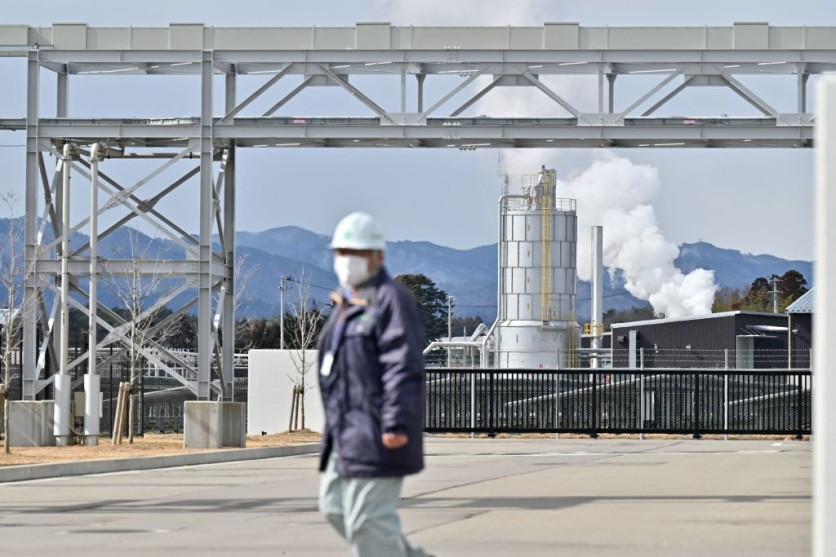Japan has unveiled an ambitious plan to invest $105 billion in hydrogen energy projects as part of its strategy to combat carbon emissions. The government aims to increase the annual supply of hydrogen by six times, reaching 12 million tons by 2040, according to a report by AP.
To achieve this goal, a total of 15 trillion yen ($107 billion) will be allocated from both private and public sources to develop hydrogen-related supply chains for the next 15 years.

Japan's Transition to Renewables
Japan's decarbonization strategy centers around using clean coal, hydrogen, and nuclear energy for its transition toward renewable energy sources.
The recent tensions caused by Russia's actions in Ukraine have raised concerns over energy security, but other advanced Western nations are advocating for the accelerated adoption of renewable energy alternatives such as solar, wind, and geothermal power, as AP noted.
At present, Japan's dependency on hydrogen primarily stems from fossil fuel sources. Detractors contend that the promotion of hydrogen and ammonia utilization primarily serves the interests of influential industries heavily invested in technologies reliant on fossil fuels, exerting their sway over government policies.
The updated plan delineates nine key priority areas, encompassing the advancement of water electrolysis equipment, fuel storage batteries, and developing large-scale tankers for transporting hydrogen.
Chief Cabinet Secretary Hirokazu Matsuno underscored the hydrogen industry's potential to achieve decarbonization, ensure a stable energy supply, and foster economic growth simultaneously.
Read Also : MIT Study Shows Shutting Down Nuclear Plants Could Lead To 5,000 Pollution-Related Deaths per Year
Hydrogen Society
Japan holds aspirations of transitioning into a "hydrogen society," although the hydrogen industry is still in its nascent stages.
The government is currently crafting legislation that will support the establishment of critical infrastructure and supply chains required for the commercial utilization of pure hydrogen and ammonia as alternative sources of hydrogen.
With this substantial investment and commitment to hydrogen energy, Japan aims to significantly reduce its carbon footprint and drive progress towards a more sustainable and environmentally friendly future.
The implementation of these hydrogen energy projects could play a crucial role in achieving Japan's emission reduction targets and establishing the country as a global leader in clean energy innovation.
Hydrogen energy is being considered as a means to cut emissions due to its unique properties and potential environmental benefits. Firstly, hydrogen is a clean and sustainable fuel source, producing only water vapor when used in fuel cells or combustion processes, resulting in zero greenhouse gas emissions.
Secondly, hydrogen can be produced from renewable sources such as wind, solar, or hydroelectric power, further reducing reliance on fossil fuels and minimizing carbon dioxide emissions.
Additionally, hydrogen offers versatility as an energy carrier, as it can be stored and transported efficiently, making it suitable for a wide range of applications, including transportation, electricity generation, and industrial processes.
By promoting the adoption of hydrogen energy, countries like Japan aim to accelerate the transition to a low-carbon economy and mitigate the negative impacts of traditional energy sources on the environment.
Related Article : Apple Carbon Neutral Mission Update: iPhone Maker's Renewable Energy Usage Increases by 30%!

ⓒ 2026 TECHTIMES.com All rights reserved. Do not reproduce without permission.




